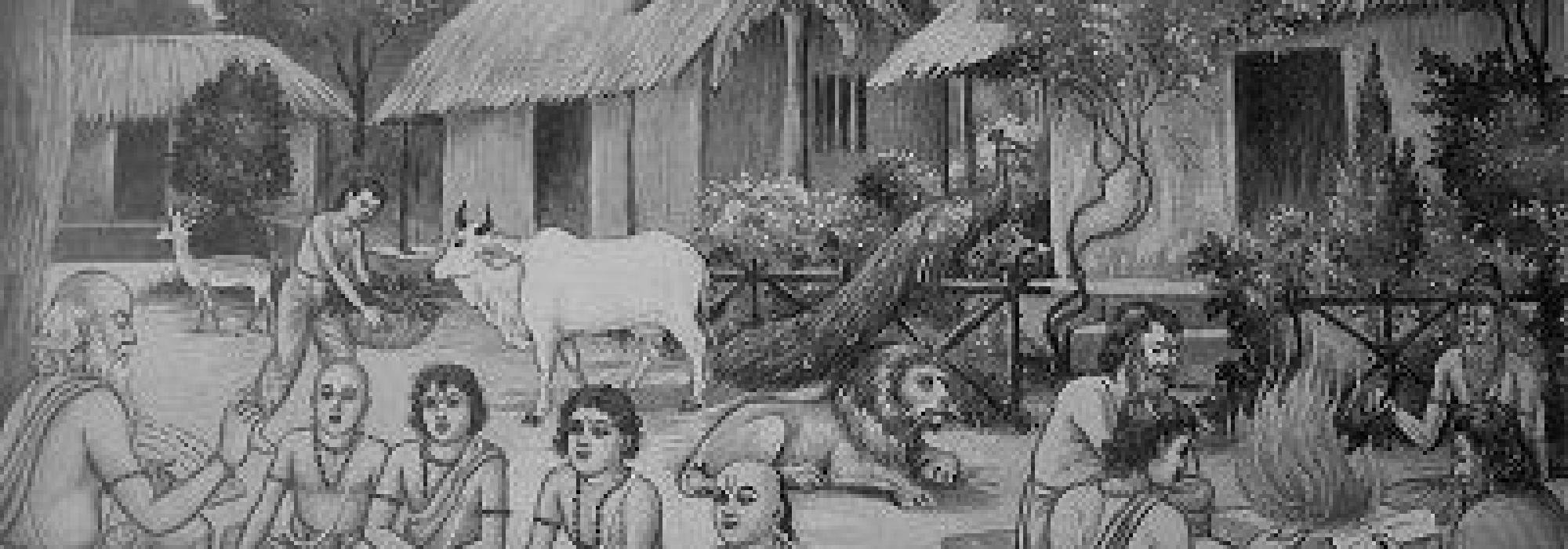निष्पिष्टापि परं पदाहतिशतैः शश्वद्बहुप्राणिनां
संतप्तापि करैः सहस्रकिरणेनाग्निस्फुलिङ्गोपमैः |
छागाद्यैश्च विचर्चितापि सततं मृष्टापि कुद्दालकै
र्दूर्वा न म्रियते तथापि तरां धातुर्दया दुर्बले ||
A hundred years before India gained independence, William Bentic forced the Goḻīśrī Saṃskṛtapāṭhaśālā in Kolkata to shut down. It was an institution which had earned the appreciation of William Jones, Wilson and others. With its closing, several other centers of Sanskrit learning were also closed down, thanks to the crooked ways of the British government, their ill-will towards Hindus and their intention of destroying traditional learning in India. Thus, several schools of knowledge and many scholars met their death at the hands of the British. It was during this time that the chancellor of the Goḻīśrī Saṃskṛtapāṭhaśālā, Premacandra-vāgīśa wrote a letter to H.G. Wilson, who was a Sanskrit scholar in England. The letter poetically described the sorry state of the Sanskrit language and the tearing down of the institution. Wilson’s reply to this came in the form of four beautiful verses. Premacandra-vāgīśa wrote him a sorrowful letter again and Wilson’s reply came in the form of a verse in the śārdūlavikrīḍitam meter.
“Despite being stepped upon by hundreds of living beings, burnt by the fiery rays of the Sun, being eaten constantly by goats, sheep and cattle and being dug out with a pick-axe, grass does not die. God indeed has a lot of compassion for the weak.”
People who hate Sanskrit due to their own small-mindedness would do well to keep in mind the love that Wilson had for Sanskrit. We must also note that one of the main agendas of the British in snatching away freedom from India was to destroy the Sanskrit language. Even to this day, we can see the bitter fruits that this strategy has borne. Sanskrit should be held in high esteem by every Indian.
Adapted from Kannada by Arjun Bharadwaj
(The original article is from the anthology Kavitegondu Kathe.)















































